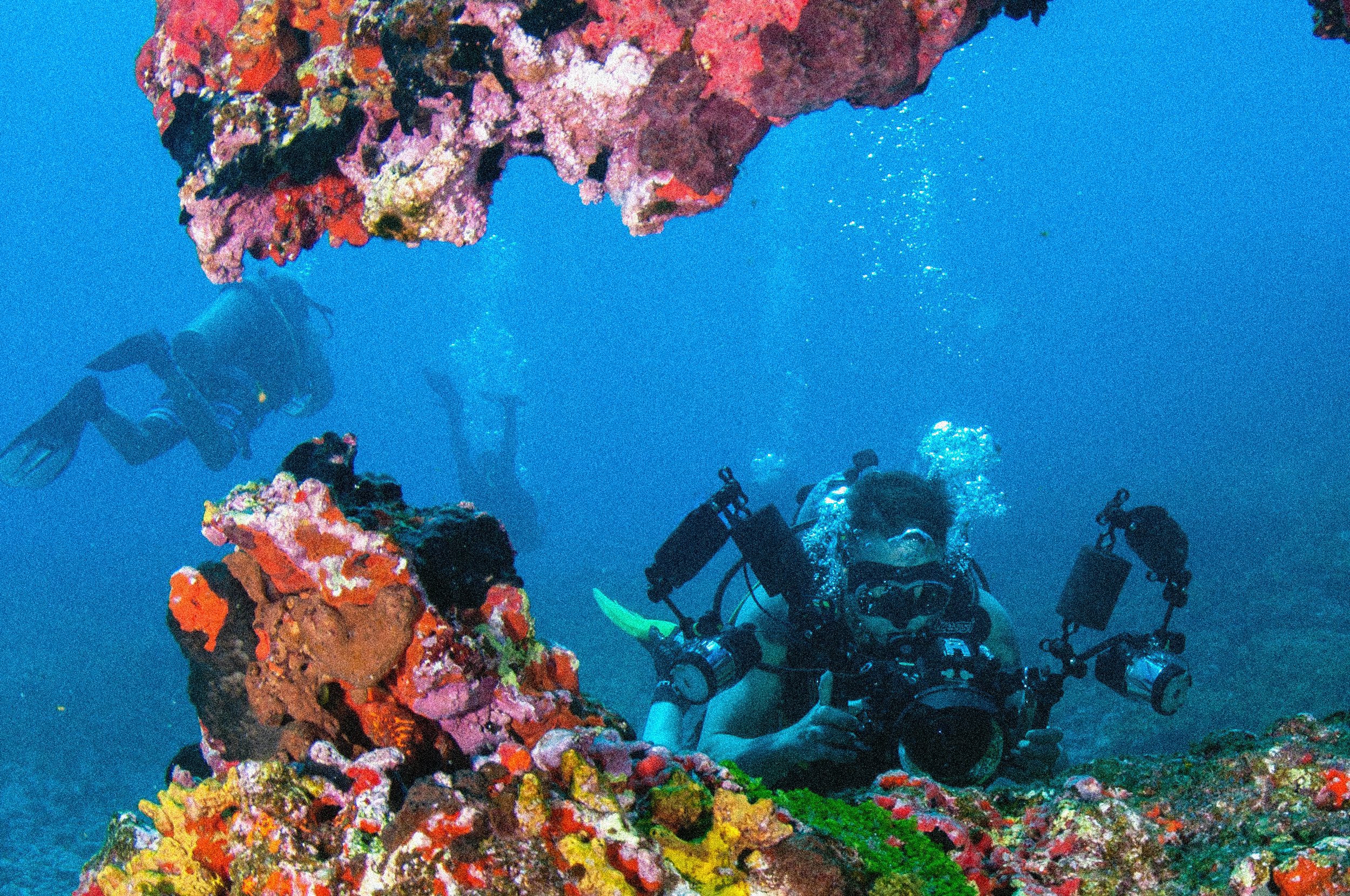IMPACT
GLOBAL CONSERVATION STRATEGY
DEVELOPED & DEPLOYED by
As an implementation vehicle for the Global Biodiversity Framework (GBF) and Sustainable Development Goal 14, Life Below Water, the Global Fund for Coral Reefs (GFCR) Coalition is enhancing the resilience of coastal reef ecosystems, communities and economies by unlocking new public and private resources that accelerate sustainable businesses and financial solutions. Hosting both a Grant Fund and an Investment Fund, the GFCR resilience-focused portfolio includes market-based solutions spanning 23 countries, including waste treatment and recycling, coral reef insurance, sustainable aquaculture and agriculture, ecotourism, blue carbon credits, and mechanisms for sustainable Marine Protected Area (MPAs) finance.
With capitalisation underway, by 2030 GFCR aims to support over 400 reef positive businesses and sustainable financial mechanisms; the resilience of over 20 million community members and 3 million hectares of coral reefs (representing 20% of the Coral Reef Breakthrough target); and the sustainable financing of 7.5 million hectares of MPAs. GFCR’s investments will aim to leverage $2-3 billion USD in public and private finance for the benefit of marine ecosystems and coastal communities.
The GFCR Coalition is a public-private partnership driven by more than 50 Member States, UN Agencies, financial institutions, philanthropies, impact investors, and conservation organisations.
The International Coral Reef Initiative (ICRI) is a global partnership between Nations and organizations which strives to preserve coral reefs and related ecosystems around the world.
ICRI emerged out of the recognition that coral reefs and related ecosystems found in tropical and sub-tropical regions are facing serious degradation, primarily due to anthropogenic stresses. Many nations face similar threats to coral reefs and related ecosystems as well as similar management problems.
The Initiative was founded in 1994 by eight governments: Australia, France, Japan, Jamaica, the Philippines, Sweden, the United Kingdom, and the United States of America. It was announced at the First Conference of the Parties of the Convention on Biological Diversity in December 1994, and at the high level segment of the Intersessional Meeting of the U.N. Commission on Sustainable Development in April 1995. ICRI now counts over 100 members.
Coral Resilience Institute provides state of the art training free of charge to coral practitioners in coral-rich, low income countries, bringing the latest science and technology needed to the people who need it most to give coral reefs a chance. The Institute offers courses spanning basic coral reef ecology to advanced training for those already working with corals including:
A centralized virtual hub of quality science & information that can be accessed freely from any part of the world.
Regional approach allows us to provide advanced education closer to home for thousands working in the coral space who often don’t have the financial resources to travel to a centralized location. The regional approach also helps our scientific team adapt training to deal with specific stressors or site specific criteria.
Train the trainer program helps to put more well-trained hands in the water within local communities around the world.
State-of-the-art online and in-water courses.
Faculty consisting of the world’s top coral scientists.
Access to fellow students and scientists across the planet.
Monthly “Ask a Scientist” interactive live stream that is accessible to any of our students and graduates, allowing for rapid dissemination of the latest science and data related to conserving coral reefs
A place to mobilize & deploy rapid rescue teams in the event of oil spills or other emergencies that threaten coral reefs.
Learn more about the Coral Resilience Institute and the Reef Rangers initiative.

A snapshot of projects making an impact around the world.



